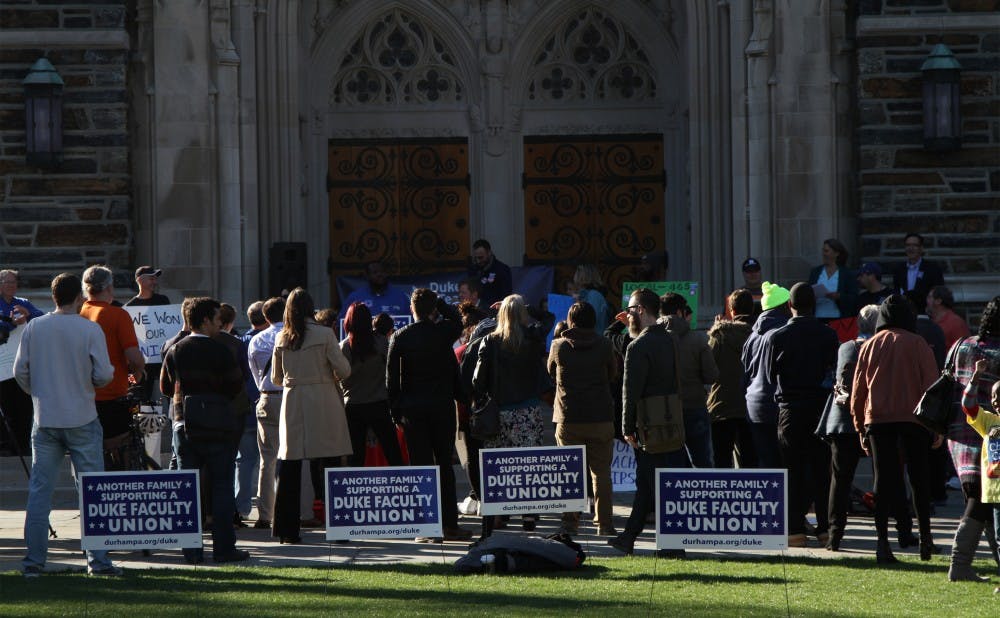For many non-regular rank and non-tenure track faculty members, the collective bargaining agreement—negotiated by the faculty union more than a year ago—represented a victory.
Before the CBA, faculty members were often in a state of flux, worried that their jobs could end at any time. Although the CBA's implementation has been successful for the most part, it has also hit some roadblocks along the way.
“If we are faculty at Duke, we should be treated like faculty at Duke,” said Christopher Shreve, instructor of biology and Duke Faculty Union’s current president.
When the faculty union entered negotiations—which lasted nine months—with the University, the union was focused on obtaining salary increases for the lowest paid employees and job security as well as access to benefits for additional faculty.
"It was a challenge agreeing on a document that would make everyone happy because the union features faculty from many different departments with varying priorities," Shreve said.
Steven Kauffmann, an instructor for the physical education department, told The Chronicle that at one point, he doubted whether or not he was going to get a new contract.
The CBA has been a benefit for faculty on Duke's campus, providing many of them with health benefits and regular pay raises to match the rising cost of living in Durham. Shreve mentioned that non-tenured faculty also feel that they are beginning to be treated with the same respect as tenured faculty.
Although these changes are monumental to faculty, Shreve pointed out that they represent only a small financial burden on the university.
“We’re not asking to be paid $100,000. We’re not even asking to be paid $80,000,” he said.
Despite the CBA's success, there have been and continue to be roadblocks with the CBA's full implementation.
In March 2018, the Duke Faculty Union alleged that the University was violating the terms of the agreement. Faculty who were promised health benefits or raises said they were not receiving them and accused the University of dragging its feet.
Since the CBA is only a guiding document that outlines the minimum standards for compensation, some departments have not necessarily raised salaries to levels above those outlined by the CBA.
In the next version of the CBA, Shreve said he hopes to clarify the document's language so that faculty are not slighted by technicalities. For example, faculty who teach during summer sessions were left out of the CBA due to vague language.
Despite remaining issues, Kauffmann and other faculty said they were grateful for the CBA's benefits. Prior to the CBA, for example, Kauffmann would be paid if the physical education department had to drop a class due to low enrollment. Now, he is guaranteed pay for each of his classes.
Going forward, he explained that making all beneficiaries aware of the union is important.
“The next step is having clear communication with the administration so that the officers in the union have knowledge of people who have been recently hired or promoted,” Kauffmann said.
Get The Chronicle straight to your inbox
Signup for our weekly newsletter. Cancel at any time.

